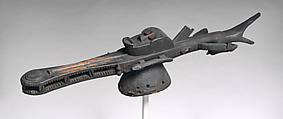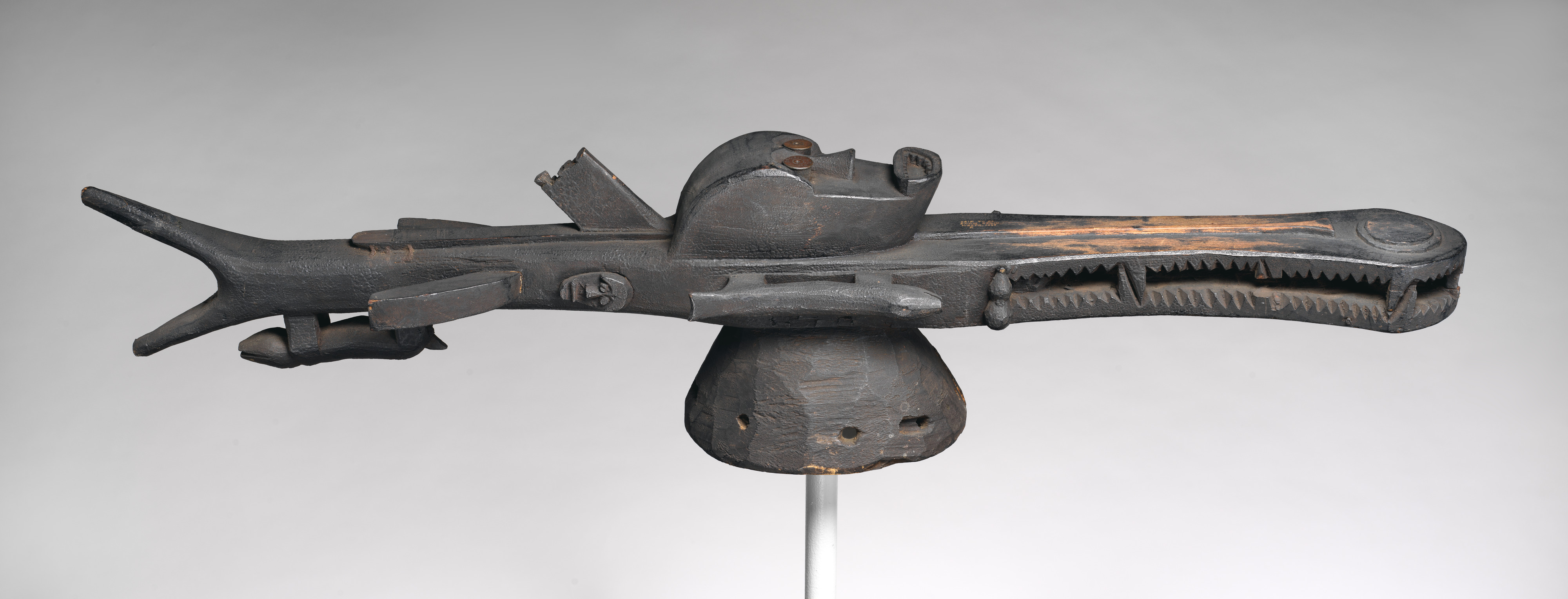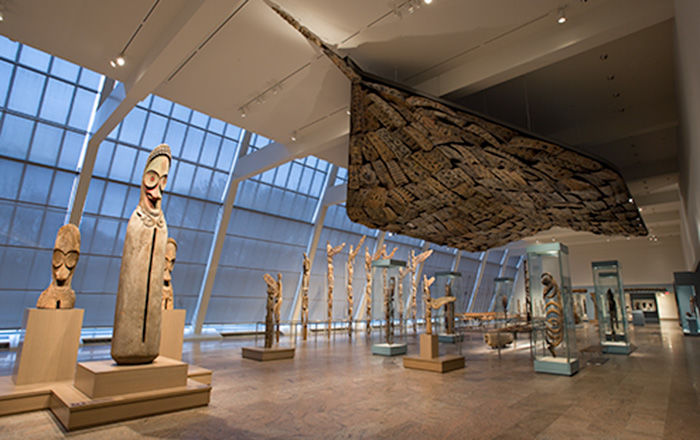Plank Headdress: Water Spirit
Not on view
Water deities are perceived to be the forces ultimately responsible for individual acquisition of wealth and power. Among the Kalabari, an Ijo subgroup that occupies the eastern part of the delta, one of the most important village institutions is the Ekine society, an association devoted to the dancing of masquerades representing water spirits. It is claimed that these performances imitate dances of the water spirits themselves, and the masks sometimes exit or enter from the water. Often the masquerade headpieces are designed so that the principal features face the sky and are visible to spectators only when the dancer bends forward.
This water spirit headdress is used in the masquerades of the Ekine men's society (also Sekiapu). The headdresses worn in such performances blend the features of humans and aquatic animals (such as the hippopotamus) or fish. Although they are worn with a cloth and palm costume that covers the entire body, the headdress is the key element which is conceived of as the seat of the masquerade spirit's "owner." Ekine performances constitute a highly appreciated form of entertainment and invoke local water spirits for assistance and guidance. Skilled performers gain status in the community and are also the arbitrators of personal disputes.
Due to rights restrictions, this image cannot be enlarged, viewed at full screen, or downloaded.
This artwork is meant to be viewed from right to left. Scroll left to view more.



